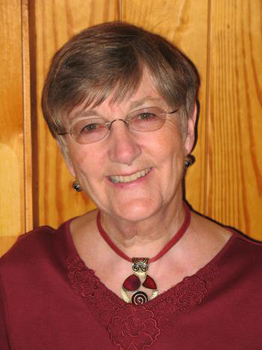This poem can be read at many levels - it can be seen as a analogy of society and those who really live and those who just survive. It is also an insight into the working of the church and ministry. Like all good poetry it needs reading several times to see the depth of meaning.Some Days | ||
| by Billy Collins | ||
Some days I put the people in their places at the table, bend their legs at the knees, if they come with that feature, and fix them into the tiny wooden chairs. All afternoon they face one another, the man in the brown suit, the woman in the blue dress, perfectly motionless, perfectly behaved. But other days, I am the one who is lifted up by the ribs, then lowered into the dining room of a dollhouse to sit with the others at the long table. Very funny, but how would you like it if you never knew from one day to the next if you were going to spend it striding around like a vivid god, your shoulders in the clouds, or sitting down there amidst the wallpaper, staring straight ahead with your little plastic face? | ||
Saturday, 22 February 2014
Some days
Thursday, 20 February 2014
What is a nation?
I find the following helpful in the current debate in Scotland.
“I propose the following definition of the nation: it is an imagined political community-and imagined as both inherently limited and sovereign. It is imagined because the members of even the smallest nation will never know most of their fellow-members, meet them, or even hear of them, yet in the minds of each lives the image of their communion.... Communities are to be distinguished, not by their falsity/genuineness, but by the style in which they are imagined.... Finally, [the nation] is imagined as a community, because, regardless of the actual inequality and exploitation that may prevail in each, the nation is conceived as a deep, horizontal comradeship. Ultimately, it is this fraternity that makes it possible, over the past two centuries for so many millions of people, not so much to kill, as willing to die for such limited imaginings.”
― Benedict Anderson Imagined Communities: Reflections on the Origin and Spread of Nationalism
(Image courtesy of Darren Robertson / FreeDigitalPhotos.net)
Monday, 10 February 2014
Called to Say Yes
I have recently discovered Edwina Gateley's poem Called to Say Yes which reminds us that our Christian calling is to say no to death in all its many forms by saying yes to life.
We are called to say yes.
That the kingdom might break through
To renew and to transform
Our dark and groping world.We stutter and we stammer
To the lone God who calls
And pleads a New Jerusalem
In the bloodied Sinai Straights.We are called to say yes
That honeysuckle may twine
And twist its smelling leaves
Over the graves of nuclear arms.
That children might play
On the soil of Vietnam where the tanks
Belched blood and death.We are called to say yes
That black may sing with white
And pledge peace and healing
For the hatred of the past.We are called to say yes
So that nations might gather
And dance one great movement
For the joy of humankind.We are called to say yes
So that rich and poor embrace
And become equal in their poverty
Through the silent tears that fall.We are called to say yes
That the whisper of our God
Might be heard through our sirens
And the screams of our bombs.We are called to say yes
To a God who still holds fast
To the vision of the Kingdom
For a trembling world of pain.We are called to say yes
To this God who reaches out
And asks us to share
His crazy dream of love.
Photo from edwinagatley.com
Thursday, 6 February 2014
Karen Armstrong says it so well
I love this quotation from Karen Armstrong:
“Religion is not about accepting twenty impossible propositions before breakfast, but about doing things that change you. It is a moral aesthetic, an ethical alchemy. If you behave in a certain way, you will be transformed. The myths and laws of religion are not true because they conform to some metaphysical, scientific or historical reality but because they are life enhancing. They tell you how human nature functions, but you will not discover their truth unless you apply these myths and doctrines to your own life and put them into practice.”
― Karen Armstrong, The Spiral Staircase: My Climb Out of Darkness
photo from Iona by me
Subscribe to:
Comments (Atom)



